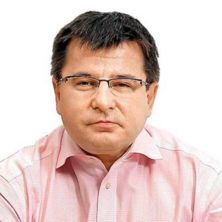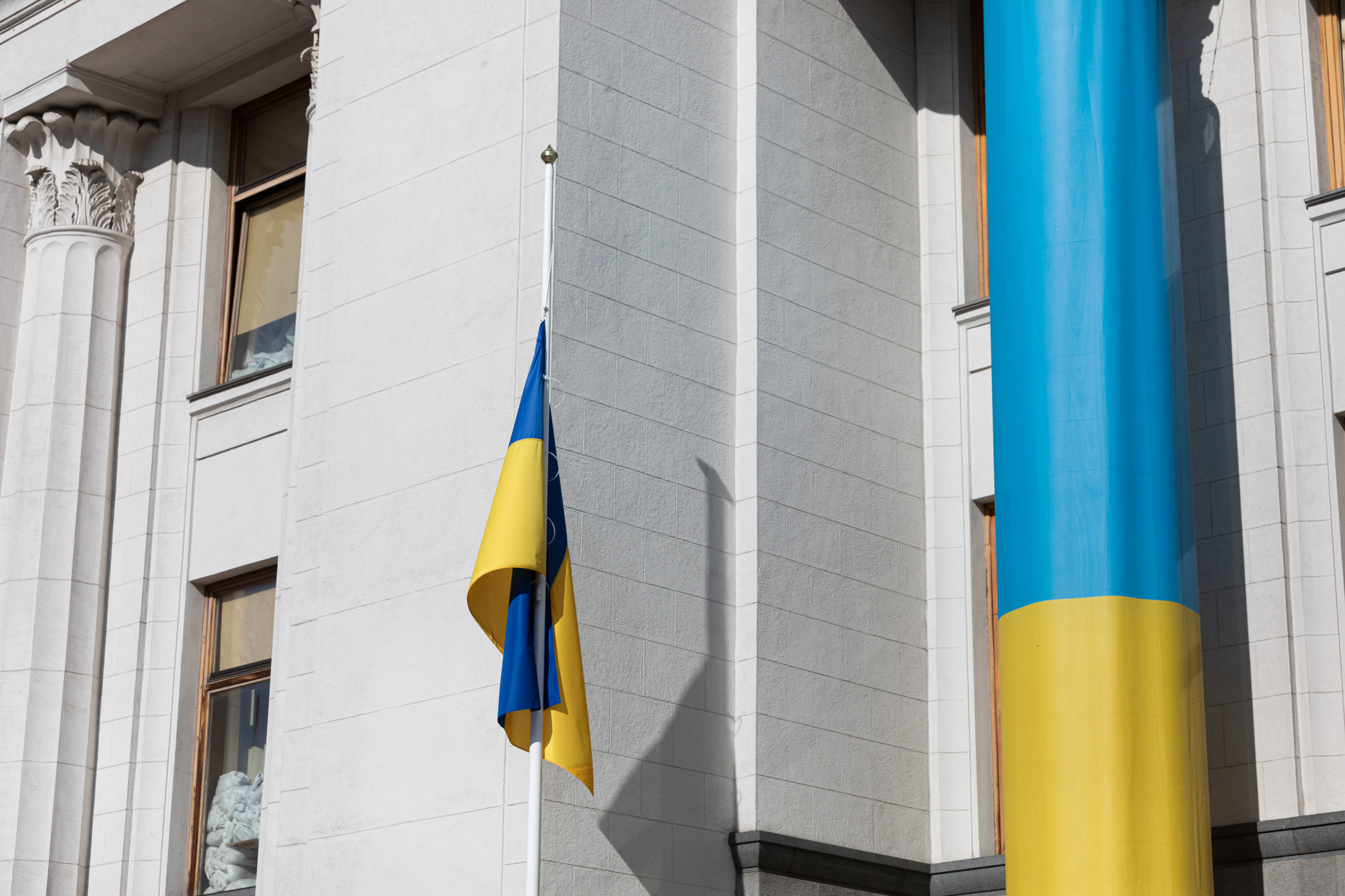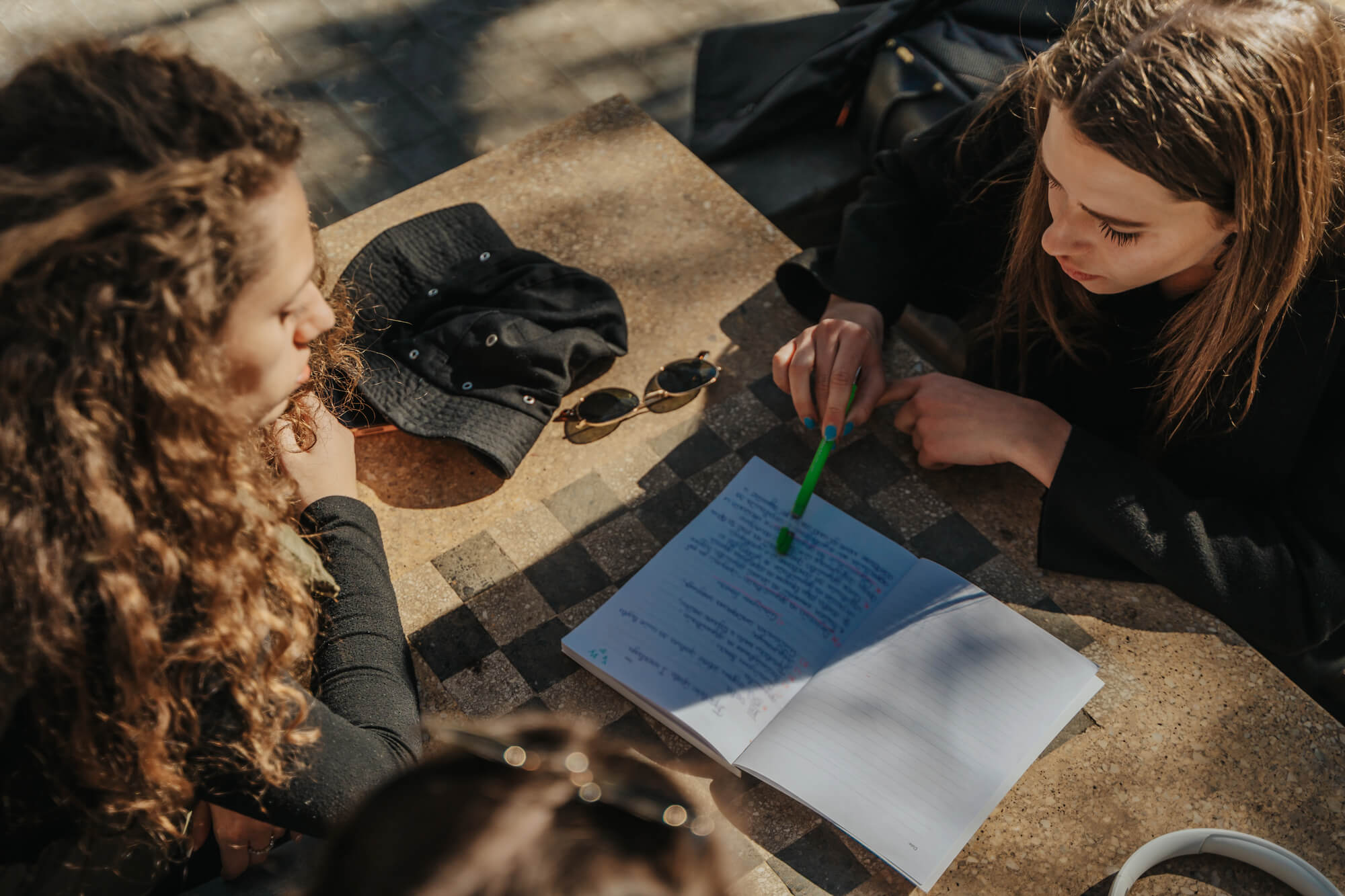Why were Western experts and journalists unable to adequately cover the Russian aggression on Ukraine both in 2014 and 2022? One of the crucial reasons is the contamination of Russian studies in the West by Russian propaganda that makes those experts look at the war from the Russian point of view.
Western scholars, think tank experts and journalists were unprepared to understand and to discuss Russia’s military aggression in both 2014 and 2022. Some of them followed (and still follow) the Kremlin’s narratives that “Ukraine does not exist”. Russia has been trying to implement this narrative into life for centuries using both direct wars and hybrid methods. The most common methods used by Russia to erase Ukraine from the world map were appropriation of Ukraine’s history, claiming Ukrainian land, including Crimea, as “historically Russian”, academic orientalism, and shaming Ukrainians for nationalism.
Western historiography of Russia continues to use a nineteenth century Russian imperial framework that takes an imperialist view on Ukraine. Western historians of Russia in line with the Kremlin’s dominant narrative in Russia portray Ukraine as an error of history, an appendage of Russia originating together with Russia and Belarus from ‘Kyiv Rus’ (there was no Russia in the mediaeval era, the Duchy of Moscow and the land it concurred were renamed from Moscovia into Russia in 1721).
Western historians and the Kremlin draw the line of Russian history from Kyiv Rus through Volodymyr-Suzdal dutchy, Muscovy, the Russian Empire, USSR, and to the Russian Federation. Ukraine appears only occasionally in this imperial framework. Russian historians portray Ukraine as ‘squatters’ who appear ‘out of the blue’ and “occupy historically Russian land”. In line with this notion, Russian politicians never recognized Ukraine’s independence.
This resulted in a long-term tendency among Western scholars and policymakers to tie Ukraine’s fate to that of Russia. Prior to the launching of the EU Eastern Partnership in 2010 the EU believed it could not invite Ukraine into membership without Russia. It took the Euromaidan Revolution, 2014 and 2022 invasions for the EU to grudgingly change its attitudes and come round to viewing Ukraine as separate from Russia. NATO meanwhile argued that inviting Ukraine into membership would (1) antagonize Russia and (2) may further divide Ukraine since Ukrainians in Southern and Eastern regions did not support NATO membership. These arguments support two Russian narratives of “NATO provoking Russia” and “divided Ukraine”, both of which are false: Russia knows very well that NATO was never a threat to it, and the differences between Ukrainian regions have been much smaller than Russia tried to present.
Moreover, many Western historians and policymakers viewed Crimea as ‘always Russian.’ Western governments pressured President Petro Poroshenko to accept that it was lost forever. Indeed, it was President Volodymyr Zelenskyy who demanded the revision of the Minsk agreements to resume discussions of Crimea’s deoccupation. Viewing the beginning of Crimea’s history in 1783, when the Russian Empire annexed the peninsula, ignores six centuries of the peninsula’s life under the Quirimli (Crimean Tatars) First Nation. If Western historians of Canada, the US, and Australia started their histories with the founding of Quebec, Jamestown, and the arrival of Captain Cook respectively, they would be accused of racism. Starting the history of Crimea in 1783 is equally racist and results from Western historians of Russia using outdated nineteenth century imperial frameworks.
Moreover, universities and think tanks with centres devoted to the former communist world are mainly run by scholars of Russia who dominate the field of post-Soviet studies and Eurasian affairs. These scholars provide the bulk of the external reviewers to specialized journals and act as gatekeepers (i.e., censors) to what is published (I have this experience with many specialised studies journals).
It is doubtful that a scholar or expert on Brazil or China would be considered an expert on Latin America or Asia (and if he/she claimed this expertise, this claim would be taken with a grain of salt). However, Russian experts believe that they have the right to comment on, write about and dominate analysis on fourteen other former Soviet republics – and no one questions this right nor their expertise.
Specifically, scholars of Russia predominate among experts invited by the media to comment on the Russian invasion of Ukraine since 2014 despite the fact they tend to view the country through Moscow’s eyes. Their academic orientalism is evident since they primarily use Russian sources to write about Ukraine and rarely use any Ukrainian sources.
Many Western journalists continue to cover the former USSR from Moscow – as they did before 1991. This reinforces the viewpoint among Western scholars of Russia that Moscow-based journalists are ‘experts’ on Russia, Ukraine, and the remainder of the former USSR.
Finally, some Western scholars of Russia used the Kremlin’s definition of the term ‘nationalists’ as a synonym to “Nazis”. This has nothing to do with political science and everything to do with Soviet propaganda suppressing national movements in the USSR. A Ukrainian ‘nationalist’ in the USSR and in the Russian Federation is anyone who supports Ukraine’s independence and the EU integration and does not see Ukraine as a part of the Russian Empire or so-called ‘Russian World’. Using a political science definition of nationalism would show it to be weak in Ukraine where it has the lowest electoral support in Europe.
These five methods gave rise to stereotypes, exaggerations, and misconceptions about Ukraine. They were evident in how most Western scholars of Russia and many policymakers agreed with the Kremlin that Russia would be able to “take Kyiv in three days”. Despite multiple descriptions of Russia as a deeply corrupt ‘mafia state’, Western experts believed that the Russian military had underwent reforms and that the Russian army was the ‘second strongest in the world’. At the same time, they largely underestimated Ukraine. In line with Russian propaganda Ukraine was commonly depicted as deeply divided between ‘pro-Russian’ East and ‘pro-Western’ West, as an ‘artificial’ country and a ‘failed state’.
The most pro-Russian of Western academics repeated the Kremlin trope of Ukraine supposedly composed of two hostile civilizations, with the south-east closely tied to Russia. Some even went so far as to question whether the south-east had strong ties to Ukraine. This was remarkably similar to President Vladimir Putin’s claim that south-eastern Ukraine was ‘Russian land’ wrongly included by Vladimir Lenin into Ukraine.
A large number of scholarly articles since 1991 have dealt with Russian speakers and the language issue in Ukraine. Few Western studies condemned Russification of Ukrainians in Russia, USSR or occupied parts of Ukraine. In contrast, any attempts to support Ukrainian language were presented as “Russophobia”.
Failing to see the fundamentally different paths of Ukraine and Russia since 1991, Western scholars of Russia find it difficult to understand Ukraine’s resilience, national unity, and the success of its armed forces since the 2022 full-scale invasion. Ukrainian society is more resilient than Russian because it has a well-developed civil society that is a product of three popular revolutions that successfully forced Ukrainian governments to respond to citizens’ demands. The decentralisation reform implemented since 2014 further empowered local elites and civil society. Ukraine’s extensive volunteer movement and better performing armed forces are products of a horizontally organized society of citizens with agency. Russia has a vertically organized society of subjects who feel that they have no agency (and thus effectively no volunteer movement in Russia).
Ukraine underwent de-Sovietization and de-Stalinization from the late 1980s to 2010, and since 2015, decommunization. Putin’s Russia underwent re-Sovietization, establishment of a religious cult of the “Great Patriotic War” (the German-Soviet war of 1941-1945) and the rehabilitation of the tyrant Joseph Stalin. Most Ukrainians view Stalin as a criminal while most Russians hold a positive view of the tyrant. Western scholars of Russia provided scant attention to Putin’s promotion of a cult of Stalin and yet it was accompanied by the denial or downplaying of his crimes against humanity as part of the cult of war and xenophobia fanned by his regime. Few Western studies of the Russian media analysed over two decades of the dehumanisation of Ukrainians in the Russian media and yet dehumanisation always precedes genocide. Since the full-scale invasion, Russian television calls daily for the destruction of the Ukrainian state and genocide against Ukrainians.
Taken together these developments produced practically an intellectual vacuum among Western scholars when Putin published his long essay ‘On the Historical Unity of Russians and Ukrainians’ in July 2021. Western scholars of Russia had few intellectual materials to explain the ideological drivers behind Russia’s military aggression against Ukraine and the war crimes committed by Russian soldiers against Ukrainians. Putin’s essay, published at the same time as allegedly the decision was made to invade Ukraine, was the culmination of the development of Russian nationalism from the Soviet acceptance of Ukrainians as a separate, but close, people to the Tsarist and White Russian émigré (those who fled Bolshevism in early 20th century) denial of Ukrainians as a separate people. The Soviet regime recognised a Ukrainian identity and the Ukrainian language; and Ukraine had the formal right to exit the USSR inscribed in the Soviet constitution. Today the Russian Federation claims that Russians and Ukrainians are ‘one people’ and Ukrainian is a dialect of Russian.
Western scholarly studies of Russia ignored the tradition of Russian nationalism from Soviet to Tsarist and White Russian chauvinism and imperialism. Therefore, they were unable to comprehend Putin’s obsession with Ukraine or why his views of Ukraine as a country populated by repressed ‘Little Russians’ who would greet his troops as ‘liberators’ proved to be so disastrously wrong.
The Russian invasion of Ukraine has shown to what extent the field of post-Soviet studies and Eurasian affairs needs a fundamental perestroika. As a way of speeding up this long overdue perestroika, contemporary Ukrainian studies should be transferred from Eurasian to European studies departments. This would encourage Western scholars of Russia to view Ukraine as an independent nation rather than ‘squatters’ on ‘ancient Russian land’ or an appendage of Russia and Crimea as belonging to Quirimli within Ukrainian borders rather than Russians.
Taras Kuzio is a professor of political science at the National University of Kyiv Mohyla Academy. His latest books are “Putin’s war against Ukraine: revolution, nationalism and criminal circles” (2017 and 2019) and “Fascism and genocide: Russia’s war against Ukrainians” (2023). His book Crisis in Russian Studies? Is available to download free in pdf.
Attention
The author doesn`t work for, consult to, own shares in or receive funding from any company or organization that would benefit from this article, and have no relevant affiliations



